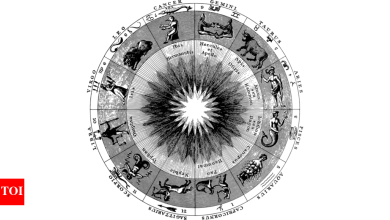A voice for democracy: permanent literary heritage of Thomas Mann

One of the greatest writers of the 20th century, Thomas Mann’s literary talent reflected a wandering life among the diverse world, especially after fleeing from Germany in the early 1930s.In 1929, Mann extended to global fame, when he won the Nobel Prize for Literature – mainly for his great social novel, “Budenbrooks” (1901), but also for his story Kriti, “The Magic Mountain” (1924).But during and after the Nazi dictatorship, from which he ran away, Mann wrote political essays and gave a radio speech to his compatriot about the German “devastation”, causing Holocost. These clear ideas were often reflected in his work.
Initial growth for literary prominence:
Thomas Mann was born on 6 June 1875 in a business family in Lubek, Northern Germany. He was picked up with four brothers and sisters, and wrote his first prose sketches and essays as a school child – even though he once repeated a grade and understood as a German only “satisfactory” student.His artistic aspirations were not well fit in the mainstream of the middle class, and his passion for literature hurt his business father. The struggle of this sensitive Bohemian to pursue the family’s time-educated business, partly inspired the first work of the value, “Budenbrooks.” When his father died in 1891, Mann left school before completing his A-Stars and moved to Munich with his family. Staying away from his father’s legacy, he soon started working as an independent writer and had ambitions to become a journalist.At the age of 22, after spending time in Italy with his brother Henriques, Mann began to pen “Budenbrooks”, which was reduced to a “decline of a family” in German. A semi-autocratic debut novel about the collapse of a rich business family was a success that was able to remove its writing.
War and brother -in -law rivalry:
Soon after other tasks, the Novella Collection “Triston” (1903) was followed, including “Tonio Crawger”, a story about the opposite between artist and citizen, soul and life.In 1905, the novelist married Katia Prancim, daughter of a rich Munich family of scholars. He was also attracted to young men, although it did not disturb Katia. The couple had six children. Some of them later followed their father’s footsteps and became a writer.The First World War (1914–1918) began and Thomas fell out with his brother Henriques, by then a successful writer on the role of Germany in the war. Henrich published an anti-war pamphlet, while Thomas defended the empire and its war policy.It was not until 1922 – by the time the Germany war had lost the war and reached with the Republic of Democracy – that Thomas Mann changed his stand and supported democratization.Maan’s Nobel Prize for Literature in 1929 was a major success for the author, but long before the outbreak of the following World War, Mann felt the danger.He expressed opposition to the growing Nazi party and in 1930 made a fierce argument in favor of totalitarianism and social democracy.Thus in the spring of 1933, only a month after Adolf Hitler became a German Chancellor, the value did not return to Germany from a lecture tour in Europe. He settled in Switzerland, after the Nazis, his family seized Man House in Munich with the author’s bank accounts.The first section of the “Joseph and Hiz Brothers” was later published when it was published after smuggling out of Germany-the four-part novel describes the avatar of the Bible figures.After Mann condemned Nazi policies in a public letter in 1936, his German citizenship was canceled, as well as with his honorary doctorate from Bonn University. The Nazis looted him their fate, and fame.
Migration to America And return to Europe:
After the attack on Czechoslovakia of Germany, Thomas and Katia Mann moved to America in 1939. Mann held a guest professorship at a university in Princeton. When a reporter asked him on his arrival how he felt about going into exile, Mann replied: “Where I am Germany! I take my culture within myself.”Since 1940, Thomas Mann called the Germans to protest. The British Radio Station BBC broadcast its monthly radio speeches to its former motherland, bypassing the German censorship. In over 60 broadcasting, he spoke to the discretion of his compatriot, and did not overcome the mass murder of the Jews.[1945PublicPublicPlants”Whyisthe”whyarethepeopleofallthepeoplewhohavebeenresponsiblefortherightsoftherightsoftherightstogettherightstotherightsoftherights[1945कामानकासार्वजनिकपत्र”क्योंमैंजर्मनीनहींलौटूंगा”सभीजर्मनोंकोनाजीयुगकेअत्याचारोंकेलिएजिम्मेदारठहराया।लेकिनकुछआलोचकोंनेहिटलरकेतहतजीवनपरनिर्णयपारितकरनेकेलिएएकनिर्वासनकेरूपमेंअधिकारसेइनकारकरदिया।Some people could not understand Man’s comment that the fire bombing of German cities was justified. “Everything should be paid for,” he said. The author continued the subject in his novel “Doctor Fostus” published in 1947. This composer explains the treaty with the Satan of the musician Adrian Leverkan, and is a metaphor to social conditions that made national socialism possible.But either everything was not going well in the USA: As a “suspected communist”, Mann was to testify to the House Un-American Activity Committee, which was called “one of the world’s most leading apologies for Stalin and the company”.The author left the US again in 1952, but he was not ready for one of the two German states and returned to Switzerland instead, where he died on August 12, 1955 at the age of 80 at the Zurich Cantonal Hospital.With his literature, but with his perseverance in front of fascism, Thomas Mann has a courageous example and a legacy that remains.




